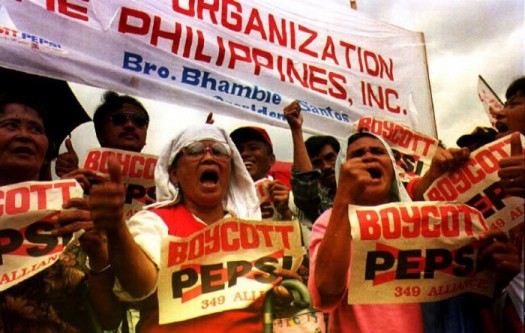Lots of companies have sweepstakes or contests that offer prizes and rewards, and some backfire — but nothing like Pepsi’s potentially multibillion-dollar gaffe in the 1990s. The soft drink company wanted to break into the Philippine market, so executives decided to do a promotional campaign that promised to have lots of payouts: Each bottle cap would have a number that correlated to a prize, and there were to be lots of small winners and then two huge winners of $40,000 each. There was to be a total of $2 million in prizes. But a software glitch at one of Pepsi’s vendors caused them to make about 800,000 bottles that had the winning number “349” on the cap, which meant that the holder was theoretically entitled to $40,000. If the company had paid out all those winnings, it would have cost $32 billion.

That obviously wasn’t a realistic possibility, so Pepsi said an error had been made and that it planned to pay each of the false winners $18 — but those who thought they had won a fortune were not pleased. They started demonstrations calling on Pepsi to pay out the full amount, at which point police and the army were called in to quiet them down, and the protests turned into full-scale riots. Pepsi records show that at least 32 delivery trucks were stoned, torched or overturned. Armed men threw homemade bombs at Pepsi plants and offices. In the worst incident, police say a fragmentation grenade tossed at a parked Pepsi truck in a Manila suburb Feb. 13 bounced off and killed a schoolteacher and a 5-year-old girl and wounded six other people.
Pepsi faced thousands of court claims that it had to work through in the following years. There was a lengthy trial and the Philippine commerce courts eventually ruled that Pepsi’s mistake wasn’t malicious and it hadn’t committed a crime. At the end of everything, Pepsi’s total combined losses, between physical, legal, and brand equity costs, would top $20M. Their market share would plummet and take years to rebound.
